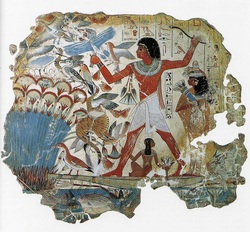
As I read old books from the sources of human history, I find with amazement narration of misadventures and inescapable life dilemmas we still meet today, old transgressions and bad choices perfectly actual in the XXI century.
Everything is passing, everything will come again. We learn from History that people learn nothing from History[2]. There are no old stories, only old people. For a newborn, any story is new. Things change ceaselessly, with great commotion and suffering, but too little is really new; this means that learning wisdom from the past is valuable and life-saving. For, while with the succession of years, decades, centuries and millennia many things did progress dramatically – particularly technology and knowledge – Human nature does not change much. The same kinds of people keep living the same kinds of feelings, dilemmas, conflicts and “unique” situations, the same errors, over and over again[3] from the Stone Age to the Technology Age.
If there is indeed such an eternal return, an endless cycle of the same characters, roles and events, then, not learning from the past just because we believe that the past is out of date, fulfills a curse of blindness. To err is so human, but to do again the same old mistakes is sad stupidity. Perhaps, most people do not learn, but maybe you can do it.
__________________________
[1] Ecclesiastes 1, KJV Bible:
1.9: The thing that hath been, it is that which shall be; and that which is done is that which shall be done: and there is no new thing under the sun.
1.10: Is there any thing whereof it may be said, See, this is new? it hath been already of old time, which was before us.
1.11: There is no remembrance of former things; neither shall there be any remembrance of things that are to come with those that shall come after.
[2] We learn from History that people learn nothing from History. "What experience and history teach is this-that people and governments never have learned anything from history, or acted on principles deduced from it." G. W. F. Hegel, ‘Philosophy of History’ (1832) Introduction
[3] “Those who cannot remember the past are condemned to repeat it.” George Santayana The Life of Reason, Volume 1, 1905
 RSS Feed
RSS Feed